“The inability to predict outliers implies the inability to predict the course of history.” – Nassim Nicholas Taleb
BLUF: There has been a blatant trend in MSM, Alternative Media and Social Media referencing the 2024 US Elections tied to an October Surprise or Black Swan Event.
Introduction:
The term "October Surprise" refers to unexpected and often dramatic political events that surface in the final weeks leading up to a U.S. presidential election, typically in October. The term, was popularized by William Casey, who’d been promised the position of head of the CIA if Reagan won the election. Allegations surfaced that Casey’s campaign had secretly negotiated with Iran to delay the release of American hostages, aiming to undermine President Jimmy Carter's re-election bid. The phrase gained widespread recognition from this election, tied directly to Reagan’s campaign secret negotiations with Iran to delay the release of American hostages, thereby undermining President Jimmy Carter’s re-election efforts.
This strategic maneuver, attributed to Reagan’s campaign, set a precedent for last-minute political tactics intended to sway voter opinions or alter electoral outcomes. However, the phenomenon of significant, late-breaking political events influencing elections extends well beyond this single instance, reflecting a longer history of high-stakes drama and strategic maneuvering in American politics.
Understanding the potential scenarios for the 2024 U.S. elections requires an examination of historical patterns, present cyclical trends, and the impact of Information Operations. Given multiple factors, the upcoming election cycle is likely to be marked by substantial volatility, with possible outcomes including civil unrest, geopolitical conflict, and significant disruptions in information flow.
History of October Surprises:
The term “October surprise” refers to unexpected events or revelations that occur in the month of October, just before the November elections, with the potential to influence the outcome. Coined by William Casey during Ronald Reagan’s 1980 presidential campaign, the concept has become a staple in American political discourse. Here is a look at some notable October surprises throughout history:
1800 - Hamilton’s Attack on Adams: In the 1800 presidential election, Alexander Hamilton published a scathing pamphlet attacking fellow Federalist John Adams. This unexpected move created a rift within the Federalist Party and contributed to Thomas Jefferson’s victory.
1840 - Voting Fraud Allegations: In mid-October 1840, federal prosecutors announced plans to charge top Whig Party officials with fraud for allegedly paying Pennsylvanians to cross state lines and vote in New York. This scandal impacted the election dynamics.
1844 - Roorback’s Tour: An abolitionist newspaper published a false story implying that James K. Polk had branded his slaves. This smear tactic, known as “roorbacking,” aimed to damage Polk’s reputation just before the election.
1880 - The Chinese Immigration Letter: A forged letter purportedly written by James A. Garfield, supporting Chinese immigration, was published shortly before the election. This letter played on the anti-Chinese sentiment of the time and affected voter perceptions.
1884 - Rum, Romanism, and Rebellion: Republican nominee James G. Blaine attended a meeting where a preacher denounced Democrats as the party of “Rum, Romanism, and Rebellion.” Blaine’s failure to repudiate the statement cost him support among key voter groups.
1888 - The Sackville-West Letter: A letter from the British ambassador, suggesting that Grover Cleveland was preferred by Britain, was published by Republicans. This letter swayed Irish-American voters against Cleveland, contributing to his loss.
1968 - Johnson’s Halt to Bombing in Vietnam: In the final days of the 1968 presidential campaign, President Lyndon B. Johnson announced a halt to the bombing of North Vietnam, hoping to spur peace talks. This move was seen as an attempt to boost the chances of Democratic candidate Hubert Humphrey against Richard Nixon.
1980 - Hostage Crisis in Iran: The 1980 election saw speculation that the Reagan campaign negotiated with Iran to delay the release of American hostages until after the election, undermining President Jimmy Carter’s re-election efforts. The hostages were released on the day of Reagan’s inauguration, fueling conspiracy theories.
1992 - Iran-Contra Affair Revelations: Just days before the 1992 election, independent counsel Lawrence Walsh indicted former Defense Secretary Caspar Weinberger in connection with the Iran-Contra affair. This indictment brought renewed attention to the scandal and was seen as damaging to President George H.W. Bush’s re-election campaign.
2000 - Bush’s DUI Revelation: In the final days of the 2000 presidential campaign, it was revealed that George W. Bush had been arrested for driving under the influence in 1976. This revelation was seen as potentially damaging to Bush’s campaign against Al Gore, though Bush ultimately won the election.
2004 - Bin Laden Tape: Just days before the 2004 election, a videotape of Osama bin Laden was released, in which he addressed the American people and criticized President George W. Bush. This event was seen as a potential influence on the election, though Bush was re-elected.
2016 - FBI’s Clinton Email Investigation: In late October 2016, FBI Director James Comey announced the reopening of the investigation into Hillary Clinton’s use of a private email server while she was Secretary of State. This announcement was seen as a significant factor in the tight race between Clinton and Donald Trump, with Trump ultimately winning the election.
2020 - Hunter Biden’s Laptop: In October 2020, the New York Post published a story about a laptop allegedly belonging to Hunter Biden, son of then-presidential candidate Joe Biden, containing emails and other data suggesting questionable business dealings. This story was heavily debated and scrutinized, with claims of disinformation and political manipulation.
October Surprises Trend Analysis:
Examining the list of October surprises provides insight into how these last-minute events often reflect the broader historical and political context of their times. By analyzing these surprises through the lenses of wars, economic conditions, cyclical theories, and institutional involvement, one can identify certain trends and patterns.
Historical Trends in October Surprises:
1800 - Hamilton's Attack on Adams
Historical Context: The 1800 election was a significant moment in the early history of the United States, reflecting internal political strife and the emergence of the two-party system.
Trend: Early political attacks and internal party disputes set the stage for contentious elections.
Contextual Factors: The early Republic was navigating its new political structures and ideologies, setting a precedent for how personal and political rivalries could impact elections.
1840 - Voting Fraud Allegations
Historical Context: The 1840 election occurred during a period of political realignment and economic upheaval following the Panic of 1837. William Henry Harrison (Whig) versus Martin Van Buren (Deomcrat). Harrison won the election but died just one month into his presidency, making his tenure one of the shortest in U.S. history.
Trend: Allegations of fraud reflect the intense political competition and efforts to influence the electoral outcome through controversial means.
Contextual Factors: Economic instability and a realigning political landscape contributed to the heightened scrutiny and accusations of election manipulation. The U.S. was transitioning from the Second Bank of the United States to a more fragmented banking system, but it wasn’t a major currency cycle transition.
1844 - Roorback's Tour
Historical Context: The 1844 election was marked by intense political rhetoric and the contentious issue of slavery. Henry Clay (Whig) versus James K. Polk (Democrat). Polk won, a strong advocate for expansion (and thereby war with Mexico), which also benefited certain corporate and banking interests.
Trend: Smear tactics and misinformation were used to sway public opinion in a highly charged political environment.
Contextual Factors: The election occurred during a period of expansionist zeal and heightened political division over slavery. Two year prior to the start of Mexican-American War.
1880 - The Chinese Immigration Letter
Historical Context: The 1880 election was influenced by anti-Chinese sentiment amid growing economic and racial tensions on the West Coast.
Trend: Exploitation of racial and ethnic fears to influence voter perceptions.
Contextual Factors: The late 19th century was marked by economic expansion, labor disputes, and rising nativist sentiment.
1884 - Rum, Romanism, and Rebellion
Historical Context: The 1884 election occurred during a time of political corruption and reform movements.
Trend: Public statements and character attacks were used strategically to undermine opponents.
Contextual Factors: Economic growth and social reform were central issues, and political scandals played a significant role.
1888 - The Sackville-West Letter
Historical Context: The 1888 election was influenced by rising nationalistic sentiments and foreign policy concerns.
Trend: Use of foreign influence allegations to sway ethnic and nationalist voters.
Contextual Factors: The late 19th century saw increased American involvement in international affairs and a rise in populist sentiments.
1968 - Johnson's Halt to Bombing in Vietnam
Historical Context: The 1968 election was overshadowed by the Vietnam War and domestic unrest, including civil rights movements.
Trend: Strategic policy announcements aimed at influencing the election outcome amidst major social and political turmoil.
Contextual Factors: The war, civil rights issues, and economic concerns (inflation) were dominant themes.
1980 - Hostage Crisis in Iran
Historical Context: The 1980 election was marked by the Iranian hostage crisis, a period of high inflation, and economic difficulties.
Trend: Allegations of behind-the-scenes negotiations and geopolitical maneuvering impacting the election.
Contextual Factors: High inflation, unemployment, and the ongoing Cold War created a volatile environment.
1992 - Iran-Contra Affair Revelations:
Historical Context: The 1992 election was influenced by the aftermath of the Cold War and economic recession.
Trend: Revelations of past political scandals influencing current electoral outcomes.
Contextual Factors: Economic recession and the end of the Cold War shaped the political landscape.
2000 - Bush's DUI Revelation
Historical Context: The 2000 election occurred during a period of relative economic prosperity but heightened partisan divisions.
Trend: Last-minute revelations focusing on personal character and past mistakes.
Contextual Factors: Economic prosperity and divisive political climates played a role.
2004 - Bin Laden Tape
Historical Context: The 2004 election was influenced by the ongoing War on Terror and heightened security concerns.
Trend: Strategic timing of security-related events to influence voter perceptions.
Contextual Factors: Post-9/11 security issues and ongoing conflicts in the Middle East were central.
2016 - FBI's Clinton Email Investigation
Historical Context: The 2016 election was characterized by significant political polarization and media influence.
Trend: Impact of investigative announcements and legal issues on electoral dynamics.
Contextual Factors: Political polarization and media scrutiny were prominent in this election.
2020 - Hunter Biden's Laptop
Historical Context: The 2020 election was influenced by the COVID-19 pandemic and widespread social unrest.
Trend: Controversial stories and allegations used to sway public opinion in a highly polarized environment.
Contextual Factors: The pandemic, economic downturn, and social issues were central to the election discourse.
Analysis through Cycles and Institutional Influence
Fourth Turning Cycle: The Fourth Turning theory, developed by William Strauss and Neil Howe, posits that historical events occur in cyclical patterns consisting of four phases: High, Awakening, Unraveling, and Crisis. Each phase lasts roughly 20-25 years, culminating in a "Fourth Turning" crisis—a period of major upheaval and transformation.
Contextual Placement: According to Strauss and Howe, the 2020s marks the beginning of the current Fourth Turning. This period follows the previous Fourth Turning, which was defined by events such as the Great Depression and World War II. The 1960s, often considered part of an Unraveling phase, set the stage for the current crisis phase by highlighting deep social and political divisions.
Historical Precedents: Previous Fourth Turnings include the American Revolution, the Civil War, and the Great Depression/World War II. Each of these periods was characterized by significant societal upheaval, often driven by both economic instability and profound political change.
Example of Currency Transitions: The end of the British pound's status as the world's primary reserve currency, marked by the decline of the Sterling in the 20th century, parallels these Fourth Turning periods. The shift from the British pound to the U.S. dollar reflects broader global transformations and the changing balance of power during such crisis phases.
Long-Term Debt Cycle: Ray Dalio's concept of the long-term debt cycle describes how economies experience periodic cycles of debt accumulation and deleveraging, typically over 50-75 years. This cycle is characterized by phases of economic expansion, rising debt levels, and eventual crisis followed by a period of deleveraging.
Contextual Placement: The long-term debt cycle significantly influences political and economic stability. The 2008 financial crisis, for instance, was a critical point in the most recent debt cycle, leading to substantial economic and political repercussions. Similarly, the Great Depression was a result of such a debt cycle crisis.
Impact on Elections: Economic crises related to the debt cycle can drive significant political events and October surprises. For example, the 1980 election occurred against the backdrop of stagflation—a result of high inflation and unemployment—which was linked to long-term economic imbalances. Such conditions can exacerbate political tensions and influence electoral outcomes.
Example of Currency Transitions: The transition from the Dutch guilder to the British pound as the dominant global currency in the 17th century exemplifies how economic shifts influence currency dominance and global power dynamics. Such transitions often occur during major economic upheavals and contribute to broader cycles of change.
Central Banks and Economic Policies: Central banks play a crucial role in shaping economic conditions through monetary policy, including setting interest rates and controlling money supply. Their actions can have profound impacts on economic stability and political landscapes.
Contextual Placement: Central banks' decisions can significantly influence economic conditions, which in turn affect political stability and election outcomes. For example, the Federal Reserve’s policies during the Great Recession and its aftermath influenced the political environment leading up to the 2008 and 2016 elections.
Impact on Elections: Economic instability, such as high inflation or recession, often results in electoral shifts as voters react to economic conditions. Central banks' policies during these times can become focal points in political campaigns and October surprises.
Historical Examples: During periods of significant economic stress, central banks and their policies have been linked to political decisions and electoral outcomes. The role of the Federal Reserve in managing inflation and interest rates during the 1970s and 1980s, for example, influenced the political climate leading up to the 1980 election.
Institutional Influence: Institutions such as intelligence agencies, law enforcement, and other government bodies can play a pivotal role in shaping political dynamics. Their actions, whether through investigations, policy decisions, or public statements, can significantly impact electoral outcomes.
Contextual Placement: Institutions have often been involved in politically sensitive matters, with their actions sometimes creating October surprises. For instance, the FBI's investigation into Hillary Clinton’s emails in 2016 became a major issue in the final days of the election, reflecting how institutional actions can influence voter perception and electoral outcomes.
Impact on Elections: Institutional actions can serve as catalysts for October surprises by influencing public opinion or revealing critical information at strategic moments. These actions often align with broader political and economic trends, reflecting underlying tensions and institutional agendas.
Historical Examples: The involvement of institutions in political events has been a recurring theme. For example, the involvement of intelligence agencies in the 1980 hostage crisis theory and the FBI’s actions in the 2016 election and lack of interest in a laptop in 2020 both highlight the significant impact of institutional influence on political outcomes.
Historically Contentious US Elections:
U.S. history has seen several highly contentious presidential elections, marked by various social, economic, and political upheavals. Here’s a look at some of the most contentious elections and the factors that made them significant:
1800 - Jefferson vs. Adams
Backdrop: The election was highly contentious due to sharp political divisions between the Federalists, led by John Adams, and the Democratic-Republicans, led by Thomas Jefferson. The election was marred by personal attacks and fears of instability.
Challenges: Social unrest and political polarization were high. The election highlighted the fierce ideological divide in the young republic.
Significant Factors: This election marked the first peaceful transfer of power between opposing parties, establishing a precedent for future transitions.
1824 - The Corrupt Bargain
Backdrop: This election was contentious due to its outcome, which was decided by the House of Representatives after no candidate secured a majority in the Electoral College. The controversy over a "corrupt bargain" between John Quincy Adams and Henry Clay led to accusations of political manipulation.
Challenges: Economic issues were significant, including the aftermath of the Panic of 1819, which affected public sentiment.
Significant Factors: The election led to the formation of new political alignments, with Andrew Jackson’s supporters eventually forming the Democratic Party.
1860 - Lincoln vs. Douglas vs. Breckinridge vs. Bell
Backdrop: The election occurred on the brink of the Civil War, with intense national division over issues of slavery and states' rights.
Challenges: The country was deeply divided over slavery, leading to heightened social unrest and the secession of Southern states following Lincoln’s election.
Significant Factors: The election of Abraham Lincoln led directly to the secession of Southern states and the onset of the Civil War.
1876 - Hayes vs. Tilden
Backdrop: This election was one of the most disputed in U.S. history, leading to the Compromise of 1877, which resolved the deadlock and ended Reconstruction.
Challenges: Economic turmoil and social unrest characterized the era, including the aftermath of the Panic of 1873 and ongoing racial tensions in the South.
Significant Factors: The resolution of the election involved backroom deals and political compromises that had long-term impacts on American politics and the South's social structure.
1968 - Nixon vs. Humphrey vs. Wallace
Backdrop: The election occurred amidst significant social and political upheaval, including the Vietnam War, civil rights protests, and widespread social unrest.
Challenges: The country faced high crime rates, economic instability, and intense social divisions over the Vietnam War and civil rights.
Significant Factors: The election highlighted deep divisions in American society and the political response to widespread protests and social changes.
2000 - Bush vs. Gore
Backdrop: This election was highly contentious due to the close results in Florida and subsequent recounts, leading to a Supreme Court decision.
Challenges: The election occurred during a period of economic prosperity but was marked by significant political and legal disputes.
Significant Factors: The Supreme Court's involvement in determining the outcome of the election was unprecedented, highlighting the role of judicial intervention in elections.
Analysis of Common Factors:
Immigration Challenges: During periods of significant immigration (e.g., late 19th century), elections often featured debates over immigration policy, which sometimes fueled political and social tensions. For example, the late 1800s saw significant nativist sentiment that influenced elections and social unrest.
Social Unrest: Many contentious elections occurred during times of social unrest, such as the 1860 and 1968 elections, where social divisions and conflicts over civil rights and the Vietnam War were prominent.
Economic Turmoil: Economic challenges, such as the Panic of 1837 or the Great Depression, often exacerbated political tensions and contributed to contentious elections.
War: Elections held during or shortly after major conflicts, such as the Civil War or the Vietnam War, were marked by heightened political stakes and divisions.
Transition to Central Bank: The establishment of the Federal Reserve in 1913 was a significant economic event, but the most contentious elections related to banking were more about broader economic conditions than central banking directly
Predictive Programming:
Information Operations (psyops) often employ techniques such as conditioning, priming, and predictive programming to subtly influence public perception and behavior, preparing the ground for planned events. By embedding certain narratives and images into media and popular discourse, these operations can condition the public to accept or expect specific outcomes, thereby softening the impact of future events and shaping responses.
From an occultist perspective, broadcasting can be viewed as a form of broad spellcasting, where media messages act as occult memetics—tools that shape collective consciousness and manifest or create outcomes in accordance with the perceived rules of reality. This alignment of psychological influence with occult principles suggests that media and information flow are not just methods of communication, but active forces in crafting and realizing future events.
Key terms, stories, and possibilities mentioned by MSM, Alternative and Social Media - regarding a “Black Swan” or “October Surprise” include:
Black Swan Event: An unpredictable, high-impact event with major consequences.
October Surprise: Unexpected events or revelations occurring in October before the elections, potentially swaying outcomes.
Cyberattack: Malicious actions targeting digital infrastructure, potentially disrupting election processes or public services.
Mass Internet Outage: Widespread loss of internet access, affecting communication, information flow, and electoral systems.
Blackout: A loss of power or media blackout, potentially disrupting public access to information and communications.
World War III: The potential outbreak of a global conflict, which could shift political and electoral priorities.
Nuclear Threat: The risk of nuclear conflict or the use of nuclear weapons, impacting global stability and electoral focus.
Economic Collapse: Severe financial crisis leading to widespread economic instability, influencing voter behavior and campaign dynamics.
Civil Unrest: Large-scale protests, riots, or social upheaval, affecting public perception and election outcomes.
Geopolitical Tensions: Rising international conflicts or diplomatic strains that could influence domestic politics and the electoral landscape.
False Flag Operation: A covert action designed to appear as if conducted by a different entity, potentially used to manipulate public perception or justify policy changes.
Information Operations: Coordinated efforts to influence public opinion and behavior through media and messaging strategies.
Predictive Programming: The use of media and cultural narratives to prepare the public for specific future events or scenarios.
Conditioning and Priming: Psychological techniques used to influence public expectations and responses to upcoming events.
Economic Instability: Fluctuations or crises in economic conditions affecting markets, employment, and consumer confidence.
Social Polarization: Increased division and conflict within society along political, social, or cultural lines, impacting electoral dynamics.
Global Health Crisis: Potential pandemics or health emergencies that could affect public health and electoral processes.
MSM - October Surprise:
An Economic October Surprise Could Roil the 2024 Election (WSJ)
“Possibilities include a U.S. financial panic, a Chinese recession, and a political crisis across the Atlantic.”
A foreign policy ‘October surprise’ hangs over US election (Taipei Times)
“A major escalation involving Israel and its enemies would play into the Trump campaign’s argument that weak Democratic leadership has produced a world on fire, but if the Biden-Harris team negotiates a ceasefire, it would benefit.”
Only an ‘October Surprise’ can swing the presidential election (The Hill)
“If a full-scale war breaks out, particularly if Iran intervenes on behalf of Hezbollah, the U.S. may be drawn into a direct conflict with Iran and a significant war in the Middle East, for which Biden would be held responsible.
At the same time, events in Asia could quickly spiral out of control if China or even North Korea thinks it would face less resistance to an invasion of Taiwan or South Korea, respectively, under a weakened Biden than under Trump.”
From Here to November: No One Knows What Happens Next (Newsweek)
“Nearly every day over the next 10 months, we could see a judge, a jury, a prosecutor, a health scare, a simple trip on a stage, domestic unrest, or a major international crisis upend or decide the election."
'Unprecedented' 2024 presidential race could get hit with an 'October Surprise,' CT historian says (PBS)
Are Russia and North Korea planning an 'October surprise' that aids Trump? (NBC)
“U.S. officials are bracing for Pyongyang to take military actions close to the U.S. presidential election, possibly at the urging of Vladimir Putin.”
The Unpredictable But Entirely Possible Events That Could Throw 2024 Into Turmoil (Politico)
Alternative Media - October Surprise:
Jack Posobiec Issues Emergency Warning: Biden Planning WWIII As October Surprise / US Faces Total Destabilization & Civil War — MUST-WATCH (Info Wars)
POWERFUL MUST-WATCH: Robert Barnes Warns Deep State Planning WWIII Black Swans To Stop Trump (Info Wars)
General Flynn And Ron Paul Both Warn Of Black Swan Event On Horizon (WLT Report)
“Now General Flynn is echoing the same warning as Paul. Trump’s former NSA advisor told Benn Johnson there’s going to be a “black swan event” that’s not even imaginable.”
Ron Paul Tells Tucker Carlson ‘Public Must Prepare for Black Swan Event’ – WATCH (The Daily Fetched)
“I just feel a lot of concern that 2024 may be the year of a black swan event. This is a national security event with high impact that’s very hard to predict.”
Alex Jones And Jerome Corsi Warn Of ‘October Surprise False Flag Attacks’ (State of the Nation)
“But why is BIG MIKE conspicuously missing from that list of 6 woke hopefuls when this appears to be the secret plan?”
[Analyst note: many huge figures in the Alternative Media space, like: Alex Jones, Tucker Carlson, Mike Adams, Joe Rogan, Glenn Beck, Michael Flynn, Ron Paul, Tim Pool, Elon Musk - have all mentioned Black Swan events, and events tied to the 2024 elections. Most, if not all, of these voices are captured, and therefore (despite many elements of truth), will push messages based on a (hidden) Globalist Agenda.
It is telling, when MSM, Alternative Media, and Social Media share similiar messaging. This is one of the telltale signs of an Information Operation, as it takes money, time, and coordination to push such messages so widely and repeatedly.]
Speculative Predictive Analysis for the 2024 U.S. Election Cycle
As we approach the 2024 U.S. presidential election, the confluence of historical patterns, contemporary challenges, and speculative scenarios presents a complex and potentially volatile landscape. This analysis incorporates the possibility of a blackout or mass internet outage, linking it to predictive programming and potential consequences of global crises.
Historically, U.S. elections marked by significant upheaval, be it social unrest, economic crises, or international conflicts, often reflect intense public sentiment and high stakes. Here’s how these factors might shape the 2024 election:
Social and Political Unrest:
Historical Parallel: The 1968 election was deeply affected by civil rights protests and the Vietnam War, highlighting how social unrest can amplify electoral tensions.
Current Indicators: Rising crime rates, immigration debates, and increasing political polarization are already contributing to a highly charged political environment. This unrest could heighten as the election nears, potentially leading to protests or demonstrations.
Economic Challenges:
Historical Parallel: Elections during economic crises, such as the Great Depression or the Panic of 1873, reveal how economic instability can drive voter dissatisfaction and electoral volatility.
Current Indicators: The U.S. faces potential economic downturns, inflation, and a significant national debt, all of which could exacerbate public discontent and influence voter behavior.
International Conflicts:
Historical Parallel: The 1860 election was influenced by the impending Civil War, while the 1944 election occurred during World War II. Major wars or conflicts often shift electoral focus to national security and defense.
Current Indicators: Potential escalation in conflicts in the Middle East or Europe, including the risk of a broader conflict or even World War III, could overshadow domestic issues and shift electoral priorities.
Central Banks and Hidden Actors:
Historical Parallel: The establishment of the Federal Reserve in 1913 and its subsequent influence on economic policy illustrate how central banks can shape political and economic landscapes.
Current Indicators: Central banks’ responses to economic instability will be critical for predictive analysis. Their policies could significantly impact public perception and electoral dynamics, especially if economic crises worsen.
Speculative Elements and Predictive Programming:
Predictive Programming: Recent media, alternative media, Hollywood and conspiracy theories have speculated about extreme scenarios such as mass cyberattacks, nuclear threats, or a complete electoral blackout. These predictions often reflect deep-seated fears and anxieties but may also influence public perception and behavior.
Possible Blackout or Internet Outage: The idea of a blackout or massive internet outage has been featured in predictive programming and conspiracy theories. Such an event could be linked to geopolitical tensions, cyber warfare, or internal instability. If a blackout or significant cyberattack were to occur, it could disrupt the electoral process, lead to confusion or disputes over results, and heighten social unrest.
Potential Scenarios for the 2024 Election
1. Intensified Electoral Conflict (Scenario): Given the backdrop of economic instability, rising crime, and potential international conflicts, the 2024 election could be marked by heightened partisan conflict. Social unrest and economic issues may drive voter turnout, or not allow voter turnout, and could influence campaign strategies, potentially leading to widespread demonstrations or protests.
2. Economic Crisis and Electoral Impact (Scenario): Should a severe economic downturn or crisis emerge close to the election, it could become a central issue. Candidates might campaign on economic reform and recovery plans, with potential for significant shifts in voter sentiment depending on how well they address economic concerns.
3. International Conflict Influence (Scenario): Escalation in international conflicts could shift the election’s focus to foreign policy and national security. Candidates might emphasize their experience and strategies for dealing with global threats, impacting campaign dynamics and voter priorities.
4. Cybersecurity and Electoral Integrity (Scenario): Concerns about cybersecurity and potential mass internet outages could lead to disruptions in the electoral process. Cyberattacks or a major blackout might cause delays, disputes over election results, and heightened scrutiny of voting systems. This could result in legal battles, recounts, or delays in determining the outcome, further amplifying electoral tensions.
5. Role of Hidden Actors (Scenario): Speculative concerns about the influence of central banks, secretive organizations, or other hidden actors could shape public discourse and campaign narratives. While direct influence is difficult to substantiate, these factors could impact the electoral climate and influence voter perceptions.
Trends & Conclusions:
We are currently navigating a period of profound transition, marked by several intersecting cycles of change. According to the framework of the “Fourth Turning” theory, we are in the midst of a crisis phase that historically paves the way for significant societal and political upheaval. This period is characterized by a breakdown of existing institutions and norms, potentially leading to a transformative resolution.
Simultaneously, we are nearing the end of a long-term debt cycle, a phenomenon described by economists like Ray Dalio. This cycle, typically spanning around 75-100 years, involves the accumulation and resolution of significant national debt, often culminating in economic restructuring or crises. Coupled with this is the potential end of the currency cycle, as historical trends suggest that major world currencies undergo transitions approximately every 100-150 years. The dominance of the U.S. dollar and the Bretton Woods monetary system could be under scrutiny as new financial systems or digital currencies emerge.
Adding to these economic and sociopolitical transitions is the 250-year civilizational cycle, which some scholars argue reflects shifts in global power and cultural paradigms. This cycle, encompassing the rise and fall of major empires and cultural shifts, is witnessing its conclusion, possibly signaling a reconfiguration of global alliances and power structures.
These cyclical changes occur within the context of larger, more ancient cosmic and astrological patterns. We are transitioning from the Age of Pisces to the Age of Aquarius, a shift that, according to astrological beliefs, signals profound changes in human consciousness, technology, and societal structures. This transition is often associated with increased innovation and shifts in collective values.
Moreover, we are emerging from the Kali Yuga, a period in Hindu cosmology characterized by moral decline and chaos. As we exit this age, there is anticipation of renewal and the advent of a more enlightened era.
These overlapping cycles are further influenced by cosmic forces and hidden occult groups that some believe play a role in shaping historical events through esoteric knowledge and influence. These elements contribute to a complex web of factors that are expected to drive significant change in the coming decades.
As we approach the 2024 elections, the interplay of these factors suggests a period of heightened volatility and potential crisis. There are indicators that civil unrest may be deliberately anticipated and prepared for by governments, possibly in response to escalating conflicts or economic instability. Scenarios such as a major war, potentially ignited or intensified before or during the election period, could further complicate the situation. This might include drastic measures like cutting undersea internet cables or implementing a prolonged blackout, exacerbating civil unrest and challenging electoral processes.
While other speculative scenarios, such as high-impact black swan events, remain plausible, they appear less likely in the immediate term based on current coverage and analysis. Overall, the convergence of these cycles suggests that the upcoming years will be marked by significant challenges and transformative changes, with the 2024 elections potentially serving as a critical juncture in this ongoing evolution.
Final Thoughts: We are reality creators. We are powerful, spirited beings. Only by way of mass indoctrination, programming, psychological manipulation and occult memetics is humanity shaped into collective acts of depravity and evil. This needn’t be the case. A broad awakening of our true nature, our divine connection to the true God Creator, and a greater understanding of our reality could turn world events around. It begins with the individual.
Related Posts:
REFERENCES:
https://www.smithsonianmag.com/history/history-october-surprise-180960741/
https://en.wikipedia.org/wiki/October_surprise
https://www.smithsonianmag.com/history/history-october-surprise-180960741/
https://www.wordorigins.org/big-list-entries/october-surprise
https://www.smithsonianmag.com/history/eight-secret-societies-you-probably-havent-heard-of-180958294/
https://www.history.com/news/secret-societies-freemasons-knights-templar
https://www.mentalfloss.com/posts/secret-societies-facts-history
https://en.wikipedia.org/wiki/1824_United_States_presidential_election
https://historyheist.com/glossary/october-surprise/
https://www.benzinga.com/news/22/02/25469105/the-black-swan-author-nassim-nicholas-taleb-to-joe-rogan-quackery-kills
https://madmaxworld.tv/watch?id=667f3e78bd32da5d28e1a481
https://www.theinteldrop.org/
https://battleplan.news/watch?id=6577ab9c1b7347401e2eb2df
https://madmaxworld.tv/watch?id=66da34270482061167fd47cf
https://madmaxworld.tv/watch?id=66be76c782cb560a8a1f2268






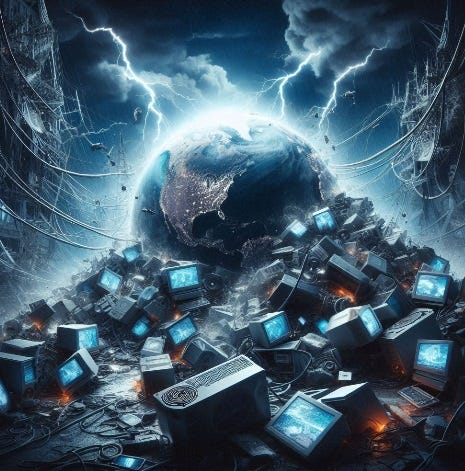
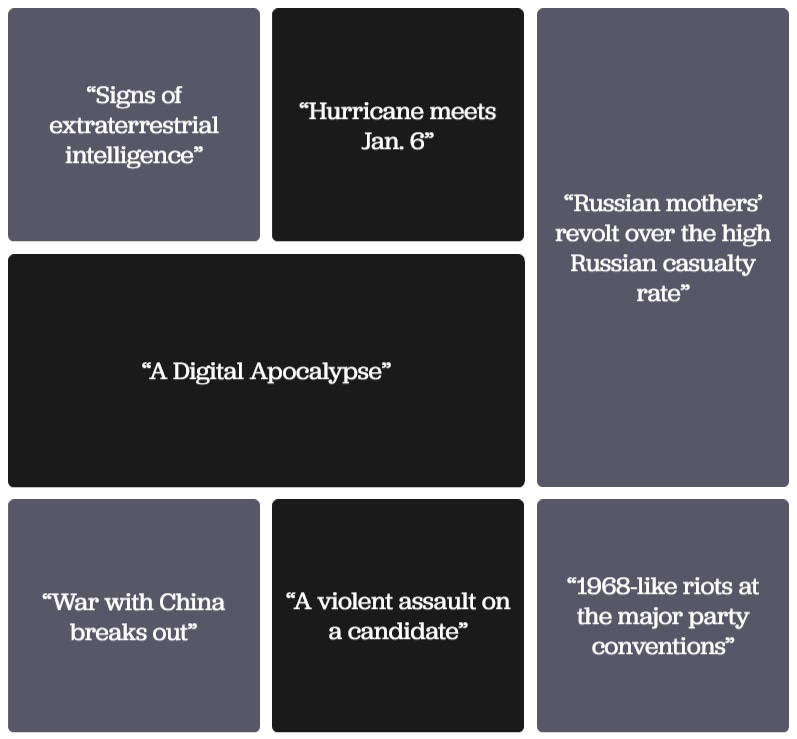
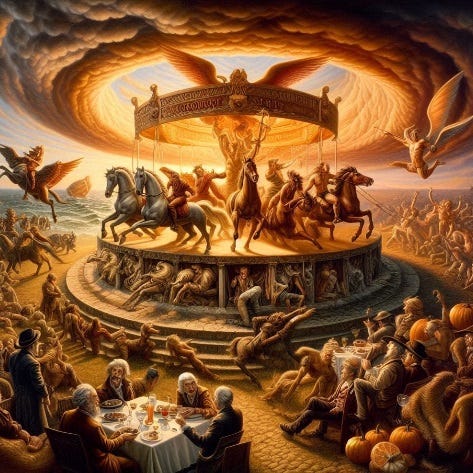
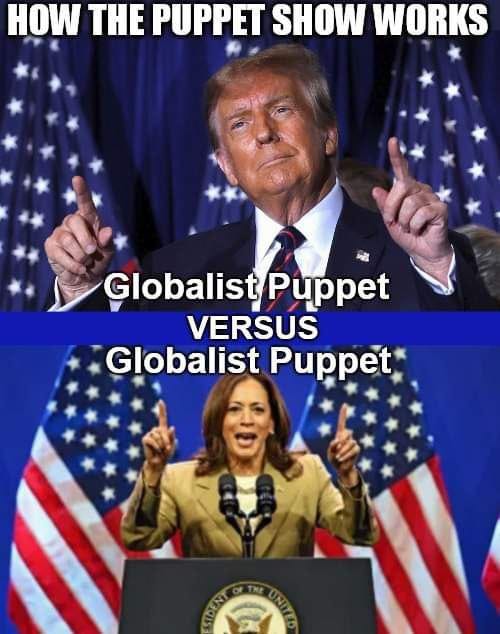
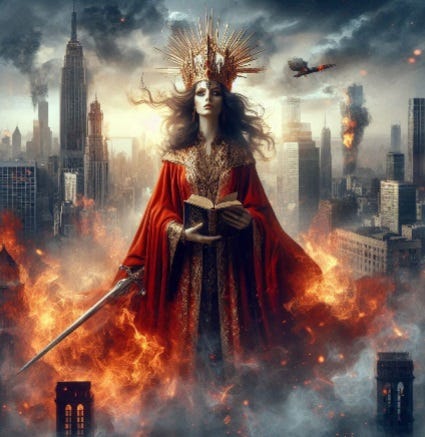
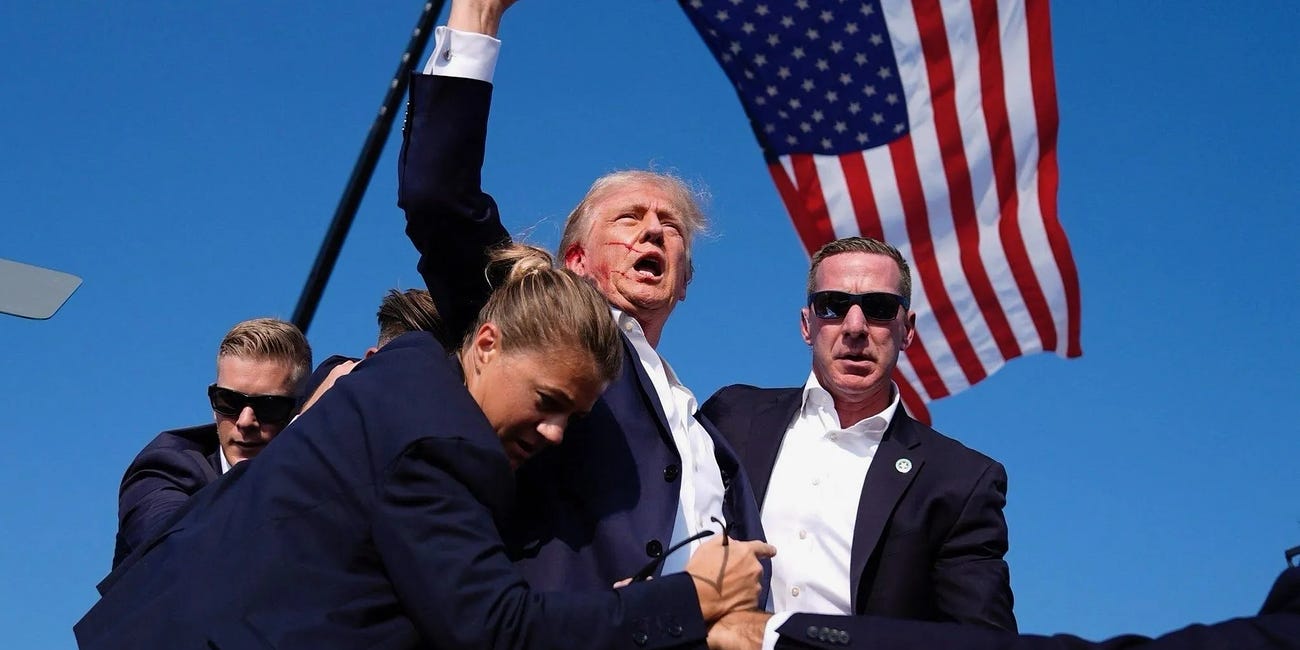
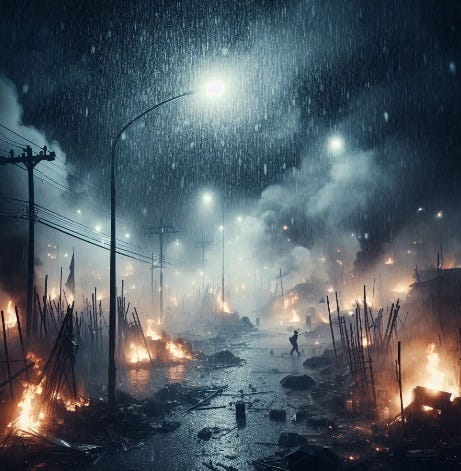
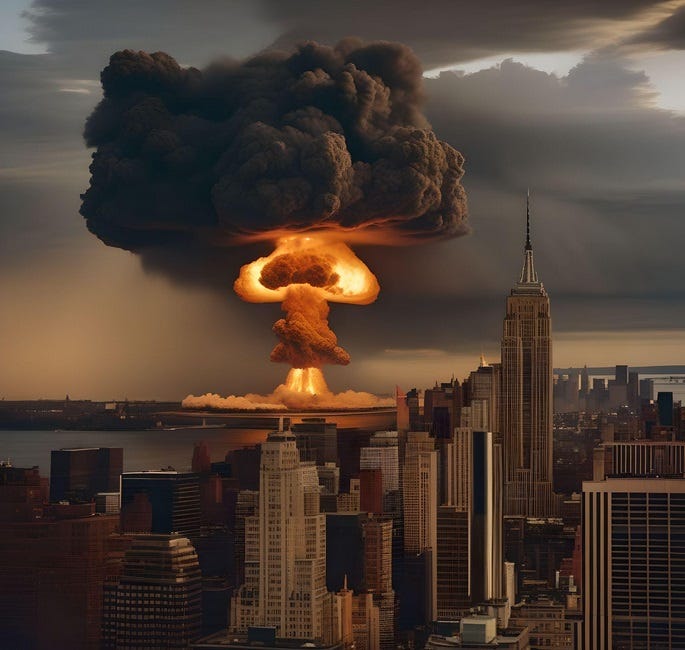


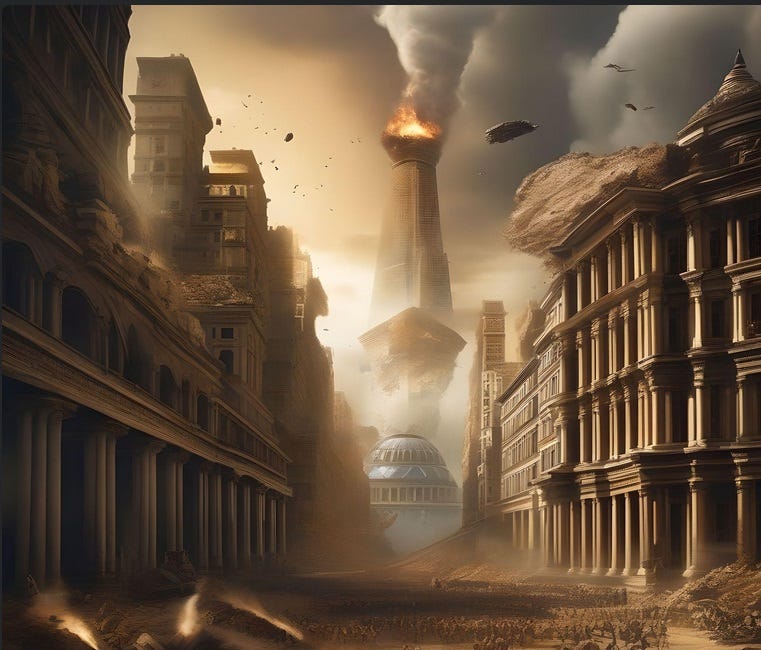
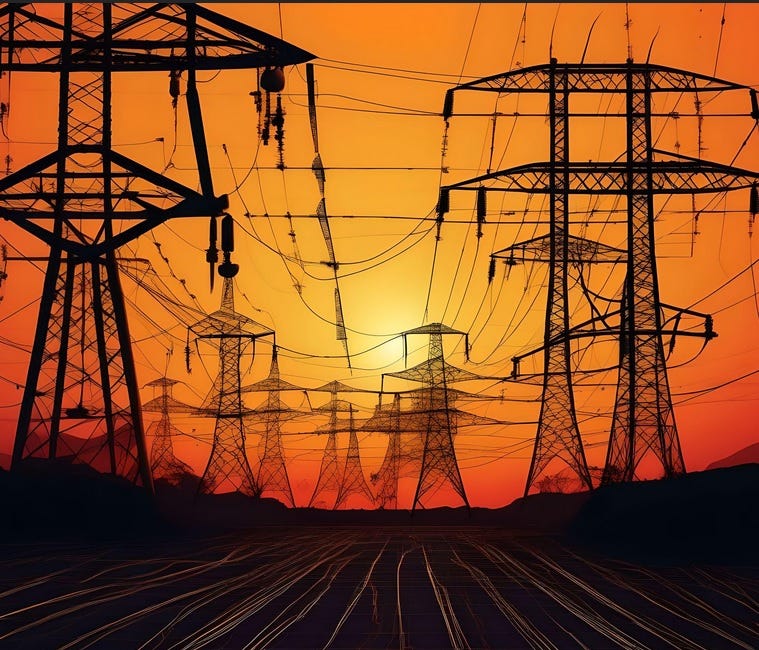
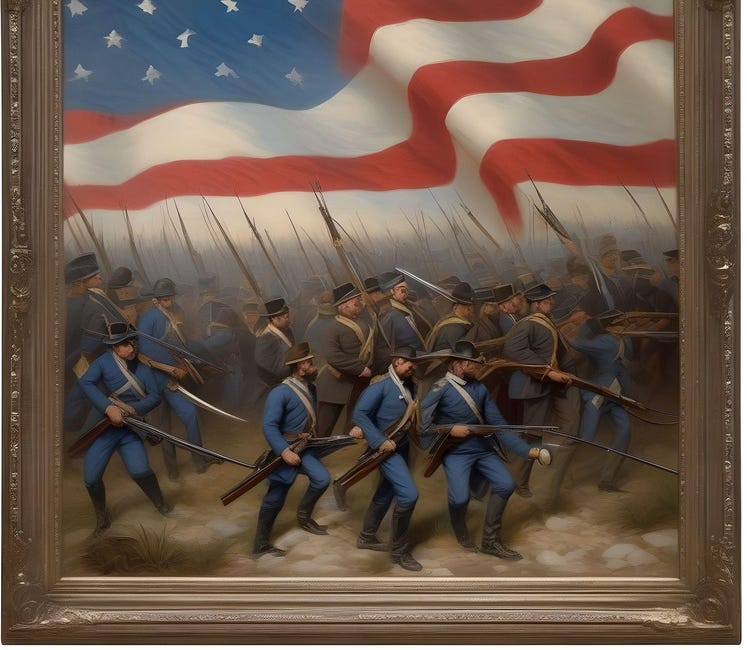
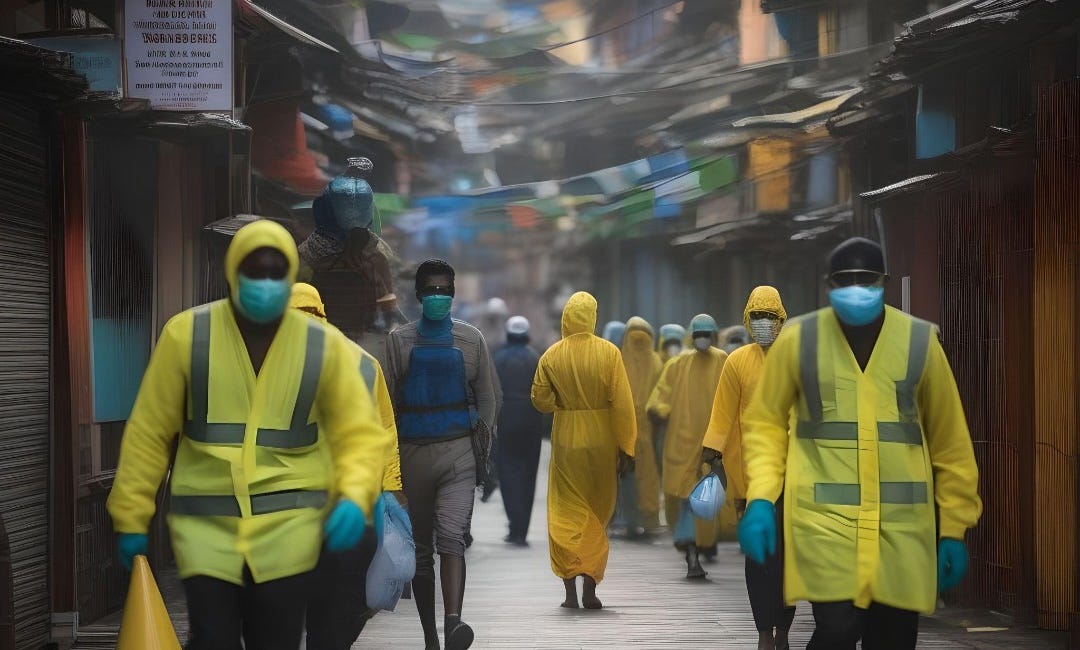
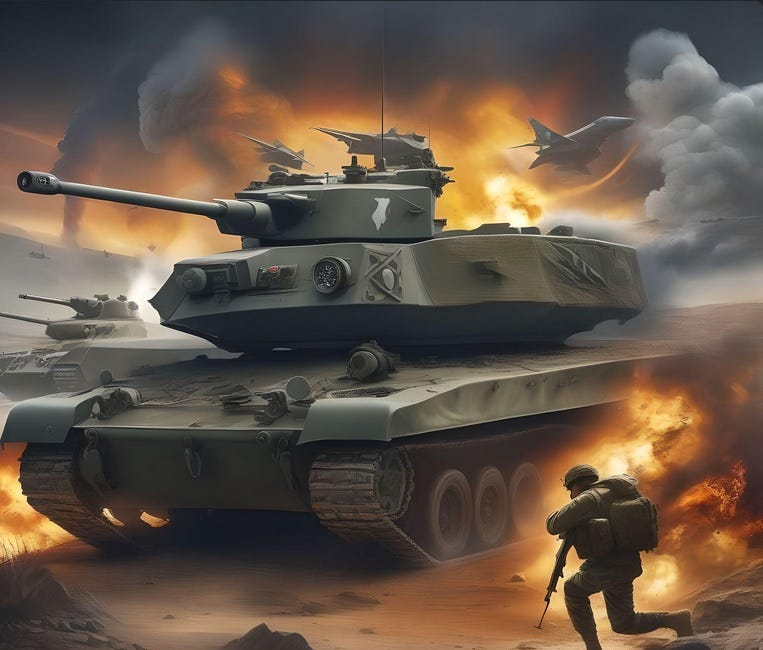
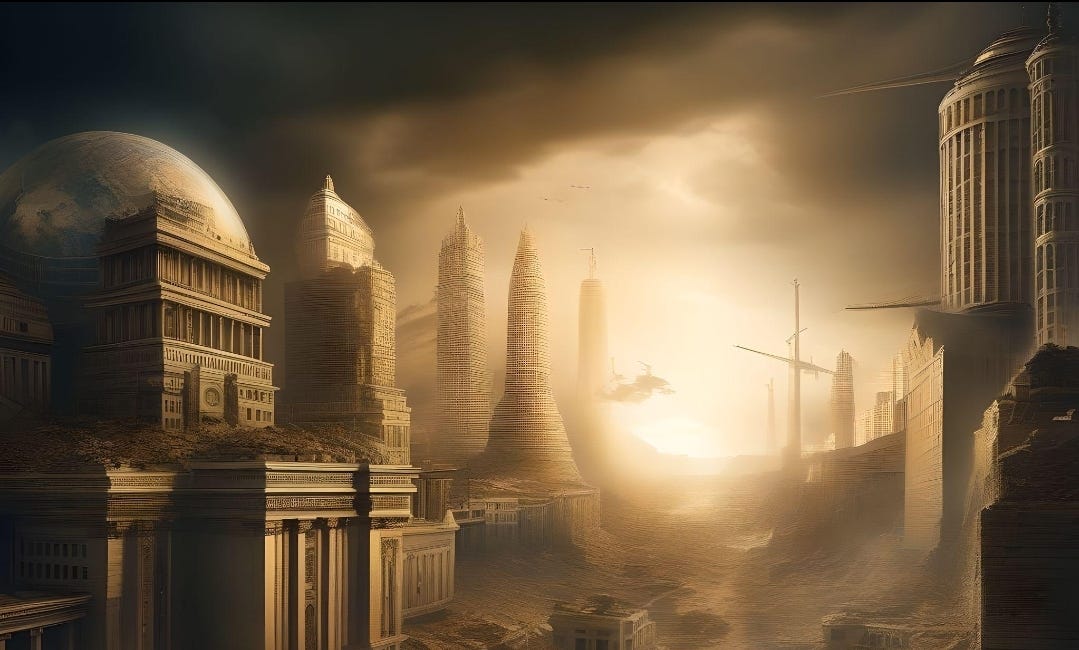
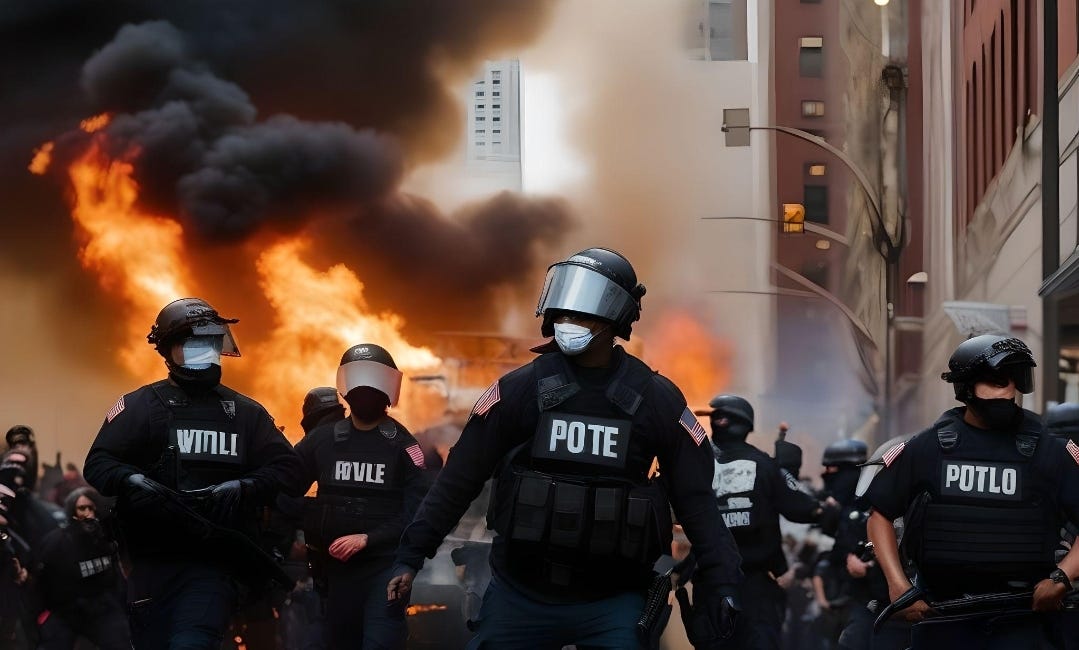
This is an excellent piece of work!
Outstanding work as usual!